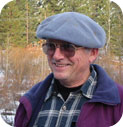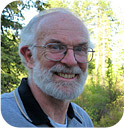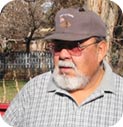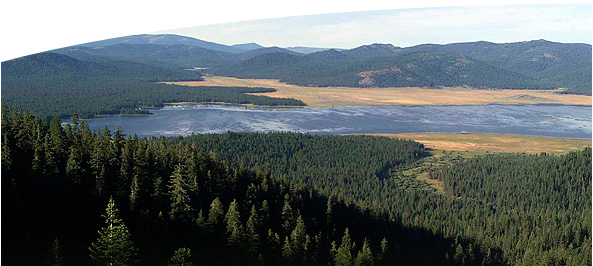About Us
Board of Directors

Ron Lunder, President
Ron Lunder grew up on a ranch in eastern Montana. He moved to California with his family in 1956 and has lived in Westwood since 1979. He worked as a carpenter and building contractor for 20 years. In 1995 he established Mountain Meadows Mead, a unique micro-winery specializing in honey and fruit wines.
Ron has been involved in local environmental issues since 1980. He was a founding member of the Westwood Herbicide Committee, which successfully appealed a Forest Service plan to spray herbicides on pine plantations on Swain Mountain. In 1983 he contracted to cut brush on a plantation on the Almanor Ranger District to demonstrate the feasibility of “manual release.” He was active in Citizens Against Toxic Emissions, a local group that stopped a proposed medical waste incinerator at Lassen College; and a founding member of Almanor Basin Concerned Citizens, which successfully opposed the construction of a garbage-burning power plant in Westwood. He was a founding member of the Westwood Planning Committee, an ad hoc group that has worked for consensus on an update to the 1968 Westwood Area Plan.
Ron is a member of the Lassen Lands and Trails Trust and the Feather River Land Trust. He has long been an advocate for the creation of a wildlife refuge at Mountain Meadows Reservoir. Ron’s special interests include hiking, skiing, mountain biking, canoeing, bird watching and motorcycling.

Charles Plopper
The Lassen National Park region has defined Charlie’s mountain environment since he was a young child. His earliest memories of the mountains are from the many family camping trips to Manzanita Lake, which included walking trails in and around the Park. When he made it to the top of Mount Lassen for the first time in the summer of 1953 at age 9, he became hooked on this area. It has been the focal point of his outdoor interests, which include hiking, backpacking, bird watching, snowshoeing, fishing and cross-country skiing. In the early 1990s, Charlie and his wife, Suzanne, became residents of Lake Almanor at the base of Dyer Mountain.
After receiving a Ph.D. from the University of California at Davis in 1972, Charlie served three years in the U.S. Army Medical Research Command, followed by teaching and research positions in medical schools in Hawaii and Kuwait, and at the National Institutes of Health in North Carolina. He joined the faculty of the UC Davis School of Veterinary Medicine in 1979 and retired as a professor and department Chairperson in 2005. He is the author or co-author of over 300 publications related to environmental contaminants and respiratory health. He serves on a number of advisory panels related to air quality and health for the US EPA, California EPA, California Air Resources Board and the Health Effects Institute.
While aware of the Dyer Mountain development proposal and Mountain Meadows Conservancy’s efforts for some time, Charlie’s review of the revised Draft EIR produced by the developers greatly elevated his concerns about the negative impacts this irresponsible development would have had on the quality of our area. He is enthusiastic about the Conservancy’s activities and embraces the opportunity to participate fully in its projects.
Laurel Paulsen-Pierce
David Escobar

Ronnie (Comanche) Morales
Ron, also known as “Comanche,” is Chairman and Cultural Interpreter of the Honey Lake Mountain Maidu. Ron grew up in Lassen County and spent his youth learning Maidu tradition from his beloved family members. After his school days, he worked for 30 years as a member of the Laborer’s Union. He helped to build just about every bridge in Lassen County, as well as the California Correctional Center, Lassen College, and the High Desert State Prison.
Ron is the lead organizer for a traditional springtime ceremony of the Mountain Maidu, the famous Bear Dance, which is the oldest continuing event in Lassen County. In this capacity, he is called upon by various local, state, and federal governmental agencies to protect cultural and burial sites wherever building is scheduled to take place.
Ron’s primary concern is the well-being of the Honey Lake Mountain Maidu tribe, for whom he has been laboring tirelessly for 10 years to obtain federal recognition. He spends time visiting the special Maidu places in Mountain Meadows that his mother, grandmother, uncle, and other family members have showed him. He is respectful of the stories they told him and of what the Creator has given us.

